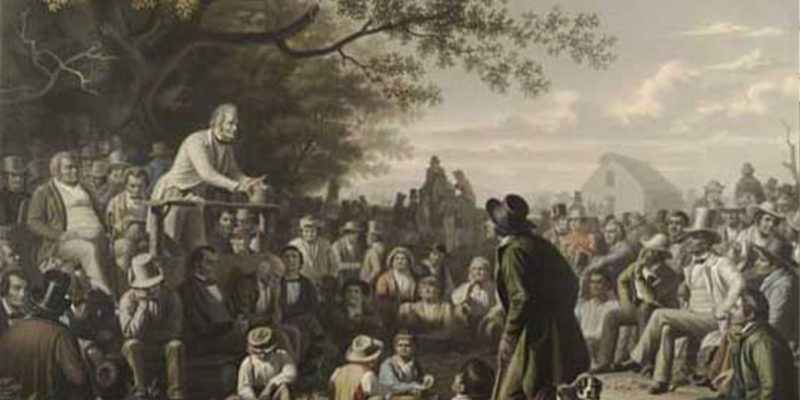Many parts of the world today appear to be submerged in a perpetual cycle of violence. It is often thought that in order to resolve conflicts and ameliorate the conditions of those being injured, action must be taken. A type of action that is external—engaging in war for international matters, using police force upon communal issues, or even, in its mildest form, counting upon the words and policies of elected figures. However, little attention is given to the internal faculties present in each individual that allow for contemplation and self-honesty. St. Augustine, a fourth century philosopher and scholar (354-430), illustrates the significance of undergoing a process of introspection through his Confessions. Readers are taken by the hand and led through his childhood, adolescence, and adulthood all the while being immersed in his reflective thoughts. While Augustine does not make explicit mentions of how political affairs should be directed in Confessions in contrast to his later work, City of God, he sets up the model that one should follow if desiring social change; namely, focusing on inner change first. Particularly, Augustine makes mention of many instances of implicit and explicit violence in his youth which impact his later developed understandings of violence in the public sphere. While Augustine is a clear advocate of participating in the social life, he makes the process of individual introspection a prerequisite so as to ensure the efficacy of the former.
Augustine emphasized such a notion in the fourth century and yet contemporary scholars from different traditions seem to echo his sentiments. Said Nursi, a Muslim scholar from the twentieth century (1877-1960), expresses in his magnum opus, the Risale-i Nur, an existentialist framework that is in many ways similar to Augustine’s. Fundamental to understanding this framework is the knowledge of how both scholars were active in the societal realm. Their writings are reflections of their personal experiences, not detached theological text. Throughout his lifetime, Nursi experienced war, and constant exile and oppression. Despite such life conditions, a recurring theme in his writing is the importance of reforming one’s internal state.
It may be accepted that self-reflection is an important asset in one’s own life as affirmed by Augustine and Nursi. Yet the question remains: how can introspection play a role in aiding others, especially when dealing with violence that is perpetrated on a societal level? The aim of this paper is to search for a solution to this problem through a comparative study of Augustine and Said Nursi.
Augustine and Nursi are comparable in their choice to focus consistently on the conditions of their own respective selves. They both make frequent mention of the state of their own hearts. Their gaze is inwards in acknowledgment of their internally impoverished state. This is, in part, a conscious emphasis on how self-reflection should be prioritized. Referencing their own selves is a mechanism that urges readers to also do the same and participate in the process. While Augustine speaks of himself, he is also implicitly asking readers to consider for themselves if they too suffer similar pains. If one examines themselves carefully, Augustine believed, one would be able to uncover the limits and potentialities of human action and will. In book six of the Confessions, Augustine speaks of the condition of his own self, stating, “every day I was dying within myself” (Confessions, 106). Moreover, he further elaborates in book seven of the “inarticulate sufferings of [his] heart” and yet he was also quite aware of his lack of proper focus on these inner matters as he affirms that the ill condition of his heart was “inward, while I was still in externals” (Confessions, 120). Recognition and understanding of the state of his own self was the first necessary step for Augustine. Without such honesty, he could not have trekked on to seek a solution.
Similarly, Nursi saw self-diagnosis as a mandatory duty and he “emphasizes the necessity of reform of the soul before one dares to embark on the reform of others” (Law 2010, 218).” Two years after leaving the prisoner-of-war camp in Russia and returning to Istanbul, Nursi went through “a radical interior change” (Vahide 1998, 164). While in solitary withdrawal, he came upon a self-realization and addressed himself saying, “Oh, you unfortunate!…you are as though a doctor curing the spiritual sicknesses of the people…whereas it is you who is sicker than anyone. You first of all find a doctor for yourself, then try to cure others!” (Vahide 1998, 166). Imbued with inner turmoil, Nursi transitioned from the “Old Said” to the “New Said,” casting off his political enthusiasm and deciding to focus upon the illnesses he saw within himself. It is through such a transformation and mindset that, throughout the next several decades, the Risale-i Nur was written.
The internal complications of an individual reflect onto the order of the collective. Hence, to resolve societal issues, one must first resolve individual ones. However, it seems that priority is more often than not given to the former rather than the latter. Indeed, it is generally understood that individual problems may be taken care of once systematic issues are addressed. Due to this misconception, political involvement is usually perceived as an activity that will lead to societal progress. High school and college students are encouraged early to involve themselves with political platforms and activities or even humanitarian organizations in far-away countries so as to affect communal change. Augustine is very explicit in his stance on focusing on external matters. In book ten of his Confessions, he proclaims, “The human race is inquisitive about other people’s lives, but negligent to correct their own” (Confessions, 180). Interestingly, both Augustine and Nursi offer a remedy that mandates the reverse process of what is usually dictated. Nursi emphasizes that as a precondition for a just society, the formation of the individual consciousness is necessary (Yavuz 2003, 349). If the egotism within an individual is not dealt with, then “all the politically and socially active individual achieves is to spread the contagion of his own ego to others” (Law 2010, 218). In Nursian and Augustinian thought, addressing the issue of one’s ego is central to the process of rectifying oneself.
Both thinkers identify unbridled egotism as a source of aggressive and violent action that impacts others. Augustine refers back to the pride he felt throughout his youth many times and labels it as an evil that had ensnared him. He recalls an instance of adolescent misconduct in which he stole pears not for the sake of enjoying them, but for “the excitement of thievery” (Confessions, 29). Yet, what is fascinating is his analysis of the motives behind such an action and why he derived pleasure from it at the age of sixteen. Augustine asserts that “pride imitates what is lofty” (Confessions, 31) and reflects that through his act of stealing, he was essentially “making an assertion of possessing a dim resemblance to omnipotence” (Confessions, 32). One who attempts to exhibit a sense of omnipotence would be one who is not aware of the human state of impotence, frailty, and susceptibility to weakness.
According to Augustine, pride, although seemingly inhabiting the realm of an individual’s internal state, ultimately results in the breach of public order (Marcus 1989, 248). At initial glance this appears as a stretched conclusion. However, pride, he asserts, is the basis for all sin (City of God, 477). And sin, within this understanding, encompasses all acts of violence. Moreover, it can be said that this “sin” Augustine speaks about represents the first initial sin of pride that was the “rupture of Adam’s friendship with God, and its legacy the rupture of all community” (Marcus 1989, 252). This estrangement is not only between man’s community with others but also with himself. Pride, in this respect, signals an alienation that is with oneself and with one’s society (Marcus 1989, 252). A society that is constituted of alienated individuals is one that breeds conflict and strife. It is important to remember here that for Augustine, Rome represented precisely this kind of self-certainty and self-satisfaction and hence inculcated in its people destructive pride. Therefore, Augustine’s aim was to bring light to people of “the danger of self-satisfaction and the error of certainty” (Barthory 1989, 8).
For Nursi, self-love is inherent in self-interest which cares not for the expense of others. He states that a civilization that takes as its objective “benefit” also accepts “force as the point of support in the life of society” and the mark of force is aggression driven by benefit for oneself alone (Nursi 2001, 420). Due to these relationships, self-interest is a perpetuator of conflict “since the benefits are insufficient to meet all needs, their mark is that everyone tussles and jostles over them” (Nursi 2001, 421). Nursi is trying to illustrate how in a society that is comprised of individuals with self-interest as their basis for action, violence will be inevitable. Any type of violence is a direct or indirect result of an unmanaged and unchecked self, one that is bereft of examination and awareness. Self-interest, then, must be traded for virtue, which is a byproduct of consciousness and which must first be attained on the micro-individual level if it is to be enduring.
Self-interest ultimately traces back to Augustine’s notion of self-love. It is this misdirected love that ultimately brings about harm on individual and collective levels. In the Twenty-Fourth Word, Nursi begins by saying, “O my self-worshipping soul!”—indicating the priority of internal reflection—and continues with the declaration that “Love is the cause of the universe’s existence, and what binds it” (Nursi 2001, 367). Moreover, he adds that the human is the “most comprehensive fruit of the universe” and because of this, “a love that will conquer the universe has been included in [the human’s] heart” (Nursi 2001, 367). Yet, if the human being’s capacity to love is misused and directed towards oneself, then, parallel to Augustine’s thought, one “ascribes to [the self] a sort of dominicality” (Nursi 2001, 367). Through this false ascription, only internal suffering and torment will occur and external manifestations of inner affliction will follow (Nursi 2001, 368). Whereas if such love is directed to “One possessing infinite perfection and beauty” then one “will be able to love everything without distress in His name and as His mirrors” and take joy in the bestowal of favor upon oneself and all others (Nursi 2001, 369). Nursi makes an apt analogy stating, “Do not resemble a fire-fly. For it drowns all your friends and the things you love in the darkness of desolation and suffices with a tiny glimmer in itself” (Nursi 2001, 369). Through this example, he strives to show that self-love rooted in egotism has an inevitable inimical effect not only on oneself but also on a collective basis.
The significance of the individual cannot be understated in Nursian and Augustinian thought. For within the individual lies the potentiality of a flourishing society. If an individual’s development is neglected, so is a society’s growth and progress. Augustine states the following in the City of God: “…the source of a community’s felicity is no different from that of one man, since a community is simply a united multitude of individuals” (25). The individual’s happiness, in turn, is possible by means of introspection and education. Yet, it resides as a concealed seed that must be cultivated if it is to eventually give fruit to those around it. Through his writings, Augustine sought to express this “latent unity and order in individuals” which would eventually reflect onto that individual’s society. The construction of a peaceful society, then, lies in the construction of an individual consciousness. Nursi likewise advocated for the prioritization of self-transformation amidst all reasons for political engagement. This was evident through his efforts to establish an educational institution and through the several decades in which he abstained from politics in order to write about and discuss matters relevant to one’s existence. For Nursi, “the betterment of the individual human soul [is] the prerequisite for the emergence of a lasting moral order in society” and as such, it is only through the completion of such an essential task that one may benefit any collective (Turner 2013, 570). Though coming from two different traditions, the writings of Said Nursi and St. Augustine both illustrate the significance of introspection and the implications it holds for a society and people marked by peaceful progress.
Works Cited
Augustine, Saint. 1991. Confessions. Translated by Henry Chadwick. Oxford University Press.
– 2003. The City of God. Translated by Henry Bettenson. Penguin Books, 2003.
Bathory, Peter Dennis. 1981. Political Theory as Public Confession: The Social and Political Thought of St. Augustine of Hippo. New Brunswick: Transaction Books.
Law, David. 2010. “Reflections on Prayer and Social Justice in the Thought of Thomas Merton and Bediuzzman Said Nursi.” In Theodicy and Justice in Modern Islamic Thought: The Case of Said Nursi, edited by Ibrahim M. Abu-Rabi, 197-219. Ashgate, 2010.
Markus, R. A. 1989. Saeculum: History and Society in the Theology of St Augustine. Cambridge: Cambridge University Press.
Nursi, Said. 2001. The Words. Translated by Sukran Vahide. Istanbul: Sozler Publications.
Turner, Colin. 2013. The Qur’an Revealed: A Critical Analysis of Said Nursi’s Epistles of Light. Berlin: Gerlach Press.
Vahide, Sukran. 1998. The Author of the Risale-i Nur: Bediuzzaman Said Nursi. Istanbul: Sozler Publications.
Yavuz, Hakan. 2003. “Nur Study Circles (Dershanes) and the Formation of New Religious Consciousness in Turkey.” In in Islam at the Crossroads: On the Life and Thought of Bediuzzman Said Nursi, edited by Ibrahim M. Abu-Rabi, 297-397. Albany: SUNY Press.




 Compass is an online journal that provides a space for the work of talented undergraduates who have original and well-articulated insights on important ideas and issues relating to American democracy understood in the broad contexts of political philosophy, history, literature, economics, and culture.
Compass is an online journal that provides a space for the work of talented undergraduates who have original and well-articulated insights on important ideas and issues relating to American democracy understood in the broad contexts of political philosophy, history, literature, economics, and culture.